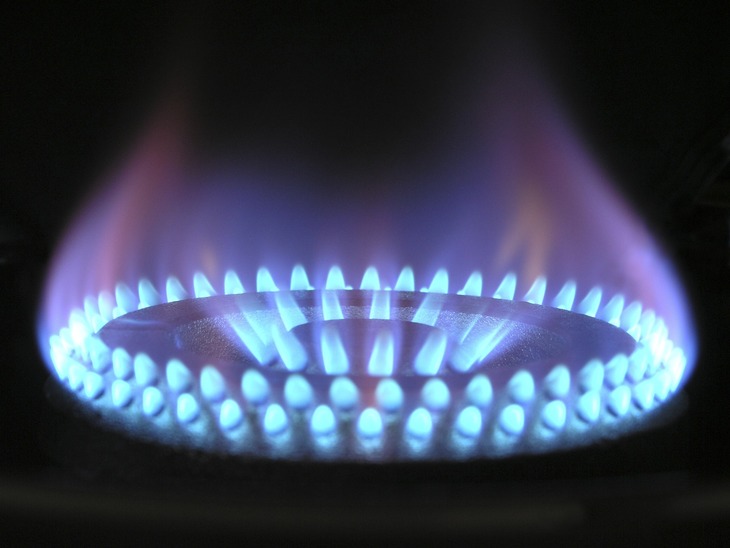Gas Heating or Induction Heating: Which is the Better Choice in Japan?
If you're looking to rent or buy an apartment or home in Japan, or thinking about renovating your current kitchen, you'll need to decide what kind of stove is best for you. In Japan, induction heating (IH) and gas stoves are the most common, but which one is best for you? Let's take a look at both types of stoves so that you know what to expect when it comes to safety, costs, and cooking experience.
Which Stove is Safer?
Induction heating generates an electrical current to create a magnetic field, which heats metal pots directly when in contact with the stove. Essentially, IH stoves let you cook without using an open flame. This means that the risk of fire is lower. Also, since IH works through contact between the pot and the stove, the stove will stop heating when you remove the pot from it. This means if you accidentally leave the stove on when you leave the house, the likelihood of your house burning down while you're gone is much lower.
Gas stoves, on the other hand, use an open flame to cook food, meaning that they can be more dangerous if left unattended. You are more likely to accidentally burn yourself compared to IH stoves, and you need to be especially careful to turn off the stove when you're not using it. As well, gas stoves produce more heat than IH stoves, raising the temperature in your kitchen. In hot Japanese summers, this can make cooking unbearably hot, so keep that in mind.
If used properly, both IH and gas stoves are safe. But overall, IH stoves have fewer potential safety risks.
Costs, Maintenance, & Energy Efficiency
IH stoves are a relatively new technology compared to gas stoves, so if you are buying a new stove for your home, an IH stove unit will probably cost you more than a gas stove. Maintenance costs for an IH stove are also usually high because of the higher cost of replacing parts or repairing damage to the stove. Maintenance for a gas stove, on the other hand, is comparatively cheaper.
Hidden Costs
A hidden cost of IH stoves is that you may need to buy new IH-compatible cookware if you don't already have some. Pots and pans need a magnetic bottom to work on an IH stove, so copper or aluminum pots and pans can't be used. It might be pretty pricey to replace all your cookware with new, IH-compatible sets. With gas stoves, almost any type of cookware can be used, so you won't need to break the bank to buy a new set of pans.
One more thing to consider is that if you are switching from an IH stove to a gas stove or vice-versa, you'll need to have a dedicated electrical circuit installed for an IH stove or a gas line for a gas stove. So if the apartment or home you are looking at already has a gas line or electrical circuit installed, economically it might be better for you to buy a stove that matches what is already installed.
Energy Efficiency
With rising utility bills becoming a bigger concern in Japan, the electricity vs. gas decision has become more important than ever. Gas rates don't tend to fluctuate based on the time of day, while electricity rates may fluctuate depending on where you live. And with many electrical companies across Japan increasing their prices, the costs of cooking often using an electrical IH stove could really add up and lead to a much bigger electrical bill at the end of the month.
However, since IH stoves heat pots directly, they produce less excess heat, meaning you won't need to use a fan and air conditioning to keep your kitchen cool. Your air conditioner costs may actually go up if you need to use it more often to cool down the kitchen when cooking with a gas stove.
That being said, cooking on a gas stove tends to work out to be cheaper both short-term and long-term compared to IH stoves, especially if you cook often.
Which is Better for Cooking?
Both IH stoves and gas stoves have their advantages and disadvantages when it comes to the actual cooking experience, so which is better for you can depend on your cooking style and needs.
Because IH stoves heat pans directly, they tend to be more efficient at heating and cooking food compared to gas stoves because of more even heat distribution. You can also accurately and quickly control temperature, meaning it takes less time to heat up a pan or lower the heat if you need to. For example, you can boil water for pasta faster on an IH stove than on a gas stove. This makes cooking on an IH stove faster than cooking on a gas stove overall.
Since IH stoves don't use fire, there will also be less smoke and odors in the kitchen while you are cooking. Gas stoves will naturally produce more heat and smoke, which can impact the flavor of the food you are preparing. This can affect your final dish's flavor and the comfort of your cooking experience, so keep that in mind.
However, where IH stoves struggle is where gas stoves shine. If you are using more than one burner at once on an IH stove, you won't be able to use high heat on all the burners because of the fixed electrical capacity of the stove. Gas stoves have no problem heating multiple burners at high heat. With IH stoves, you need to make sure that the pot or pan is centered properly on the stovetop, or the induction heating won't work and the pot won't heat up. Gas stoves don't tend to have this problem.
Depending on what you are cooking, being able to quickly remove your pot from the heat and then put it back on the heat can be vital to making sure the dish cooks properly. Since IH stoves heat pots directly, there will still be residual heat in the pots when you pull them off the burner, which might be a problem. Gas stoves tend to be much better when it comes to quickly killing the heat while cooking.
One last thing to consider is cleanup after you finish cooking. Since IH stovetops are flat, they are much easier to clean than gas stoves. Because of how they heat pans, IH stoves also tend to cause less sputtering, meaning less mess to clean off the stove. With gas stoves, you need to regularly take apart the burners and wipe down all the different components in order to keep your stovetop clean and functional, so it takes more time and effort.
Which Should You Choose?
If you cook regularly, care about being able to precisely control the flame while cooking, need to cook multiple dishes on the stove at once, and care about reducing your utility bills, a gas stove may be your best bet.
If you care more about being able to cook quickly, spending less time cleaning, and are more concerned about safety, an IH stove may be the better choice for you.
Generally, either an IH stove or a gas stove will serve you well, so just keep in mind what is more important to you when it comes to cooking, do a little research, and buy the stovetop that best fits your needs.

























